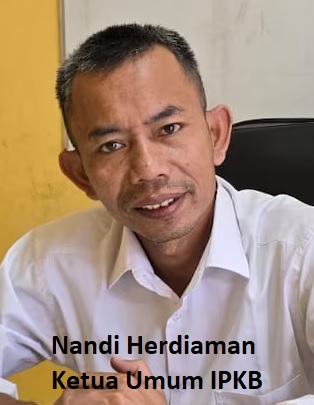Questioning President Jokowi's anger at the invasion of imported products in many goods trading sectors, the Association of Indonesian Textile Experts (IKATSI) considered that it is necessary to reform the bureaucracy in several ministries related to the economy.
IKATSI assesses that the influence of the mindset of some pro-import bureaucracy is an obstacle to economic growth, especially in the manufacturing sector, including the textile and textile products (TPT) sector.
IKATSI Executive Director, Riza Muhidin highlighted the case of garment safeguards, where the results of the investigation by the Indonesian Market Protection Committee (KPPI) of the Ministry of Trade for almost a year and recommended that the imposition of safeguards on 134 HS (7 segments) apparel for 3 years actually tried to be investigated by the Research and Development Agency. Trade (BPPP).
"From the information we got, BPPP requested that 75 HS numbers only be subject to a 5% security measure (BMTP)," said Riza.
IKATSI considers the BPPP proposal to be very unreasonable because if you calculate the price of imported clothing that is sold around IDR 30,000, it means that the BMTP is only IDR 1,500 per piece.
Riza assessed that this proposal was playing on the results of KPPI's investigation, which recommended an average BMTP of Rp. 100,000 per cut.
"Here we can assess how the Ministry of Trade's BPPP really protects imported goods in order to keep flooding the domestic market, even though KPPI's investigation has proven that there have been injuries suffered by national apparel manufacturers over the flood of imported goods for years," said Riza.
The analysis conducted by IKATSI shows that if 130 thousand tons of imported garment can be substituted by domestic products, the country's economy will benefit greatly, because the impact is not only for the garment industry itself but also for producers in the mid-stream and in up-stream.
"We can see that the safeguards not only save USD 850 million in foreign exchange, but also encourage production activities of Rp. 22.6 trillion or USD 1.5 billion," said Riza. substitute goods, "he added.
IKATSI hopes that the Ministry of Trade's BPPP and Bappenas will immediately approve the implementation of this BMTP following the Ministry of Industry, Ministry of Finance and the Coordinating Ministry for the Economy who have already approved it.
Then Riza emphasized that President Jokowi should immediately act to fix bureaucrats and officials who do not share a vision of developing the country through domestic economic activities, especially in the manufacturing sector.
"The bureaucracy and officials who have different visions with the President will make us forever dependent on imported products, and continue to undermine foreign exchange," explained Riza.
Secretary General of the Indonesian Association of Fiber and Filament Yarn Producers (APSyFI), Redma Gita Wirawasta, responded that apparel safeguards are very important for the entire value chain of the textile sector to national petrochemicals.
"Raw materials for apparel produced by Small and Medium Industries (IKM) are fabrics from the weaving and knitting industry, then yarn, fiber, thereptalic acid (PTA) to paraxylene (PX) produced by Pertamina," explained Redma.
"So this concerns the fate of the entire value chain involving more than 5 million direct workers and thousands of small, medium to large scale companies," he added.
Redma also questioned Bappenas' internal study which rejected the imposition of safeguards which she considered too superficial and compared it with the results of the IKATSI study. The Bappenas study only calculates the impact of inflation on consumers if they are subject to BMTP for apparel without calculating the impact of domestic production activities.
"The study on the impact of safeguard implementation carried out by IKATSI will certainly have an impact on economic growth and can pay for the impact of inflation," explained Redma.
"Even the IKATSI study has not taken into account PPH deposits, electricity payments, logistical use, and other economic impacts that occur if 130 thousand tons of garment are produced domestically and have not yet calculated the impact on the petrochemical sector as a raw material for fiber," he added.
Redma also questioned the conclusion of Bappenas that the imposition of BMTP will reduce export performance is a far-fetched thing and shows that Bappenas does not understand the business structure of the textile industry.
"85% of the export producers are in Bonded Zones which are not related to the safeguard rules, 15% of them use the KITE facility, try reading again the rules related to KB or KITE. And the producers of international brands are appointed by Buying Agents based in Hong Kong or Singapore and not. it has to do with importers who hold distribution licenses in the country, "explained Redma.
"This is again an old song, every time we propose a pro-domestic producer policy, we are always afraid of falling inflation and exports, but if there is a proposal for import facilitation, well, it's really fast to implement," he concluded.








